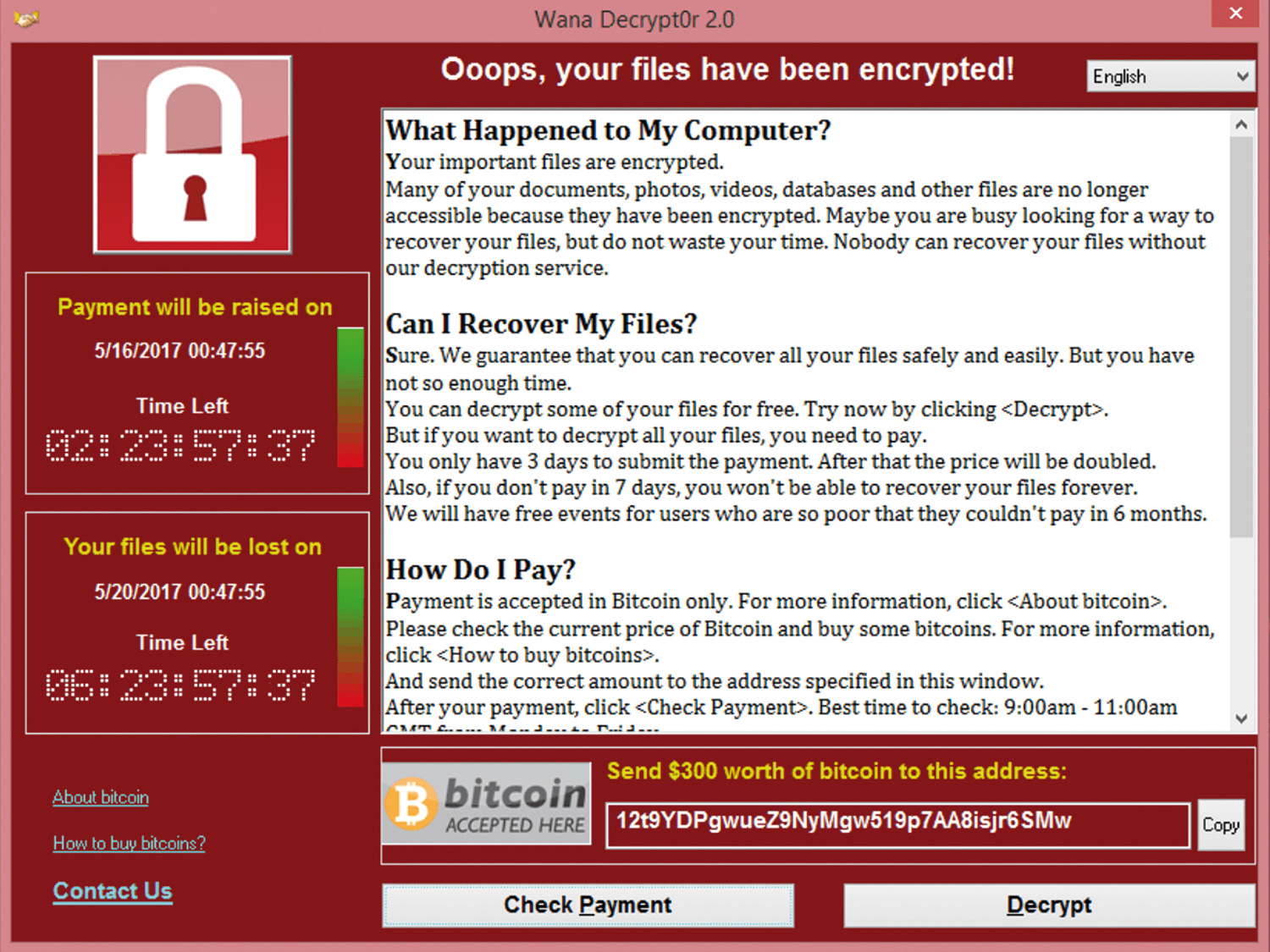

By Kaushalendra Singh — SALALAH: May 14 - Social media and comparatively older modes of communication like landlines and fax machines have come up as a major relief for the educational and many other institutions in the wake of the latest cyber attack called ‘ransomware’. Most of the higher education institutions in Salalah confirmed that they had shut down the Internet facility, and instead of interaction through e-mails they had been using SMSs (short message service) of telecom providers to interact with students or for any other official communication.
One advisory to the SCT students sent to the students through SMS said: “For security purposes, due to the computer virus spreading online, the college Internet shall be disabled today until further notice. The college will be conducting security updates to ensure our system’s safety. The college will be conducting security checking and updates and with this, students shall not be allowed to use USBs in the laboratories until further notice.”
The college has suspended college network, while the Ministry of Manpower has suspended the College Information Management System that involves information system of all the technology colleges in the Sultanate.
Dr Amal bint Ahmed al Shahri, Assistant Dean for Student Affairs, Salalah College of Technology, confirmed the precautions taken by the college to prevent any situation of cyber attack in the college system.
“We have alerted our students and academic staff about the situation through phone calls, SMSs and social media and working as much manually as possible. Our College Information Management System is totally shut down for the time being and we are advising everyone not to use USBs (universal serial bus) in the college PCs,” said Dr Amal.
She confirmed that all sorts of e-service to the college students, that involved use of Internet, has been suspended and likely to be resumed only after the system upgradation to avoid any malware attack into the system. She, however, did not confirm as to when the system would be upgraded and things would start running smoothly.
Dr Thabit Sultan Mohammed, Associate Professor Electrical and Computer Engineering, College of Engineering, agreed with the advices and steps suggested by Dr Amal. He suggested not trying any additional link as a matter of precaution or opening any attachment from any unknown source.
“Personally I suggest not opening unknown e-mails, links and unknown applications on computers to avoid the risk of being attacked. Safety is the key and I advise the students and academics to stay tuned to the latest information,” he said.
A senior administrative staff of Salalah College of Applied Sciences (CAS) admitted to have system shut down in the wake of the ‘ransomware’ which shook the electronic systems of not less than 99 countries around the globe.
“Though this is very busy time for us as final exams are approaching, still we are taking maximum precaution to keep our system safe and malware free. We are hoping the system would be in place and waiting for instruction from competent authorities… This has reminded us the value of old communication companions like SMSs and fax machines, which were in use but their frequency had reduced,” he said.
Keeping in mind the severity of the cyber attack in many parts of the world, almost all the public and private sector establishments have taken precautionary measures and have shut down their Internet. They, however, are managing urgent works through mobile data and manual delivery of urgent letters. IT experts have cautioned the Internet users, as the attackers, according to them, were professionals who looked for vulnerabilities in systems through network probing.
Oman Observer is now on the WhatsApp channel. Click here



